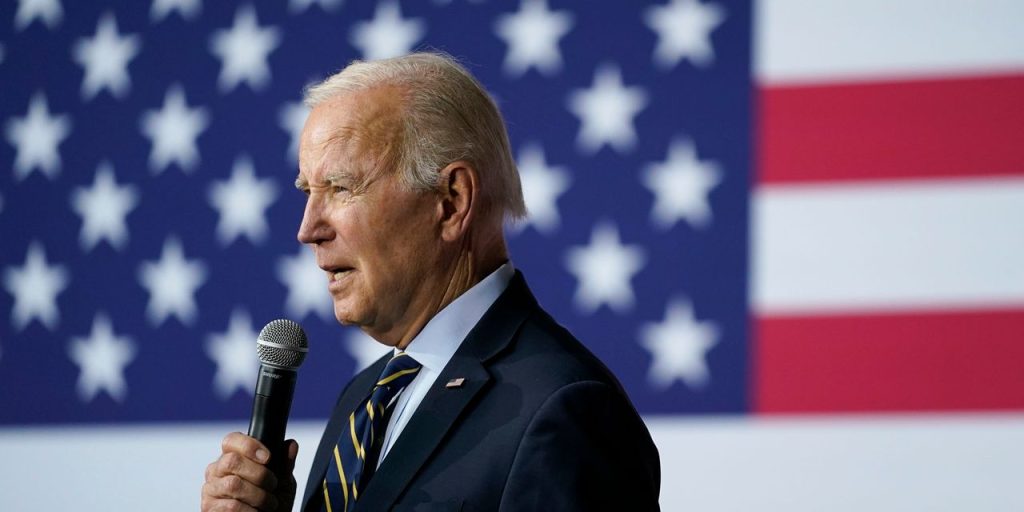What is the 14th Amendment and could it be an option for resolving the debt-ceiling impasse?
President Joe Biden was asked about it on Tuesday following his meeting with congressional leaders, a session that didn’t result in much forward movement besides agreeing to meet again on Friday. With markets
SPX,
remaining on edge over a possible government default, the 14th Amendment is still being discussed as one way out of the stalemate between the White House and Republicans. Here’s a look at a few key questions about the constitutional amendment.
What does the 14th Amendment say?
For the purposes of the debt-ceiling discussion, the relevant passage reads, in part: “The validity of the public debt of the United States … shall not be questioned.”
What would invoking the 14th Amendment mean in practice?
The government would keep borrowing money and paying its bills. The idea is that it would be unconstitutional for the U.S. to stop making payments even if Congress doesn’t act to raise the debt ceiling.
What have Biden or other officials said about this option?
Biden was asked about the 14th Amendment during an MSNBC interview on Friday. He replied, “I’ve not gotten there yet.” Treasury Secretary Janet Yellen on Sunday said invoking the amendment would risk a “constitutional crisis,” though she did not entirely rule it out.
“What to do if Congress fails to meet its responsibility? There are simply no good options, and the ones that you’ve listed are among the not-good options,” Yellen said on ABC’s “This Week.”
On Wednesday, following his debt-ceiling meeting, Biden said “I have been considering the 14th Amendment,” and cited the opinion of a scholar who he said believes it would be legitimate.
But, said the president, there’s a problem: “It would have to be litigated. And in the meantime, without an extension, it would still end up in the same place.”
Tobin Marcus, senior U.S. policy and politics strategist at Evercore ISI, said in a note not to read too much into Biden’s statement.
“Despite some breathless headlines based on Biden’s post-meeting remarks that he is ‘considering’ invoking the 14th Amendment to unilaterally declare the debt ceiling unconstitutional, a closer look at his remarks suggests the opposite: he has looked at the option and does not believe it is a viable way to prevent a crisis,” Marcus wrote. “This should lower, not raise, assessments of how likely the White House is to take this step.”
White House officials have spent time going through the legal considerations and potential market reactions, as The Wall Street Journal has reported, but administration lawyers are skeptical of using the 14th Amendment to resolve the situation.
Has the 14th Amendment been discussed during previous debt-ceiling standoffs?
Yes, it was considered by President Barack Obama, who decided against invoking it. While Biden’s lawyers are reportedly skeptical, there are members of Congress and legal scholars who say invoking the amendment is an option.
Read the full article here
